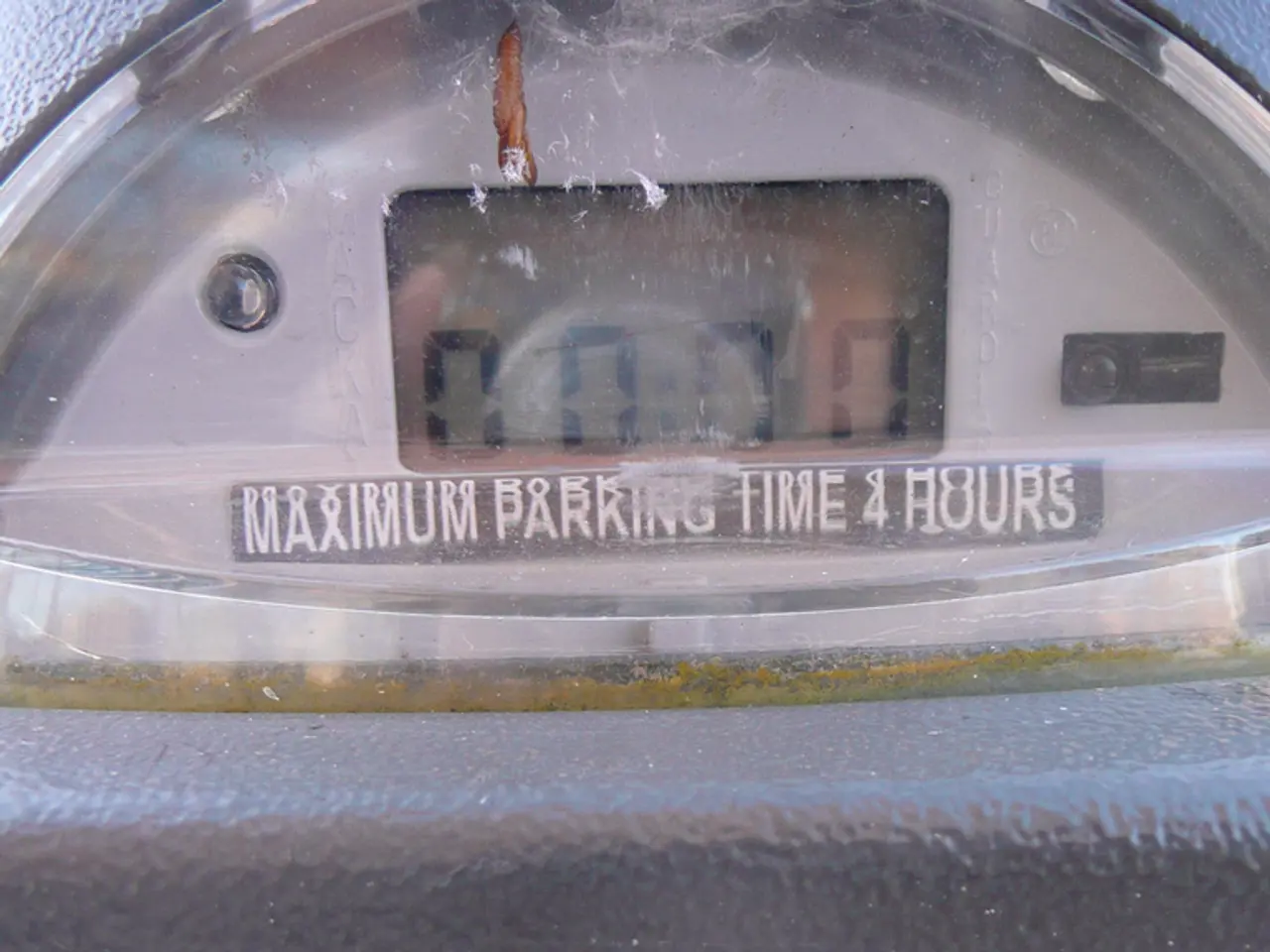Energy Shift Announcement: Government's Cabinet Office Pledges Zero Emission Promise in Buying Process, Ecotricity Transfers Electric Highway to GRIDSERVE, and Renewable Energy Guarantee of Origin Costs Drop Back to Pre-Pandemic Figures
In a significant move towards sustainable development, the UK government has announced that businesses bidding for central government contracts valued above £5 million per annum must comply with specific carbon reduction requirements. These measures aim to ensure that suppliers contribute to the UK's Net Zero by 2050 carbon reduction target in a transparent and measurable manner.
The key obligations for bidders include the submission of a Carbon Reduction Plan (CRP), a detailed document demonstrating the supplier’s commitment to achieving Net Zero greenhouse gas emissions by 2050. The CRP must contain a signed declaration affirming the supplier’s commitment to Net Zero carbon emissions and a clear plan to reduce greenhouse gas emissions fully compared to 1990 levels.
Suppliers are also required to report their emissions across the three scopes of the Greenhouse Gas Protocol. This includes Scope 1 and 2 emissions (direct emissions from owned or controlled sources and indirect emissions from the generation of purchased energy) and a defined subset of Scope 3 emissions, such as business travel, employee commuting, operational waste, and transportation both upstream and downstream.
The Carbon Reduction Plan must be published publicly on the supplier’s website and regularly updated to reflect progress and any changes. The requirements apply if the contract value exceeds £5 million per year, with the application being proportional to the contract’s nature and complexity.
These rules apply to contracts advertised on or after 24 February 2025 and to framework agreements or dynamic markets where individual contract values exceed the threshold.
Meanwhile, in the realm of renewable energy projects, four projects have passed the initial screening for Ofgem's Electricity Network Innovation Competition. Network operators are seeking £29 million for flexibility and green heat. Additionally, Scottish ministers have given Intelligent Land Investments (ILI) the green light for its proposed 450MW pumped hydro project at Loch Ness, which, upon completion, will be one of Scotland's most substantial renewables projects.
In other news, GRIDSERVE has acquired Ecotricity's Electric Highway, the world's first national electric vehicle charging network, and plans to replace all existing pumps on the network with the latest technology, including contactless payment. To improve EV charging experiences for British drivers, NewMotion has entered a roaming agreement with Mer, adding 160+ chargepoints to its network.
E.ON, on the other hand, has launched an EV salary sacrifice scheme to increase affordability for employees by offering them the chance to access EVs and home chargepoints at reduced costs. The scheme is part of the company's efforts to encourage the adoption of electric vehicles.
Lastly, the Northern Powergrid, Delta-EE, and TNEI's Community DSO project is trialling Smart Local Energy Systems with localised management of low voltage levels. The project aims to understand the effectiveness of a "connect and manage" approach for the increasing uptake of heat pumps, domestic solar, and EV charging.
Western Power Distribution's EQUINOX project seeks to demonstrate innovative commercial arrangements for encouraging demand load shifting and releasing flexibility from thermal batteries and heat pumps. Meanwhile, ENW's BiTraDER project explores the potential for a merit order stack trading market between Distributed Energy Resources (DERs).
One of the projects, Smarter Heat, aims to understand the effectiveness of a "connect and manage" approach for the increasing uptake of heat pumps, domestic solar, and EV charging. These initiatives reflect the UK's ongoing commitment to a greener and more sustainable future.
[1] GOV.UK (2021). New requirements for suppliers bidding for central government contracts. [online] Available at: https://www.gov.uk/government/publications/new-requirements-for-suppliers-bidding-for-central-government-contracts/new-requirements-for-suppliers-bidding-for-central-government-contracts [5] GOV.UK (2021). Proportionality and relevance. [online] Available at: https://www.gov.uk/government/publications/new-requirements-for-suppliers-bidding-for-central-government-contracts/proportionality-and-relevance-for-central-government-contracts
- To meet the UK's Net Zero by 2050 carbon reduction target, the renewable energy industry must secure finance for projects by demonstrating carbon reduction plans that align with this goal, as bidders for central government contracts above £5 million per annum are now required to submit such plans.
- As the UK promotes sustainable development and the adoption of renewable energy, companies in the finance sector are playing a crucial role in providing the necessary funds for projects that can help reduce greenhouse gas emissions, thereby contributing to the country's commitment to a greener future.




